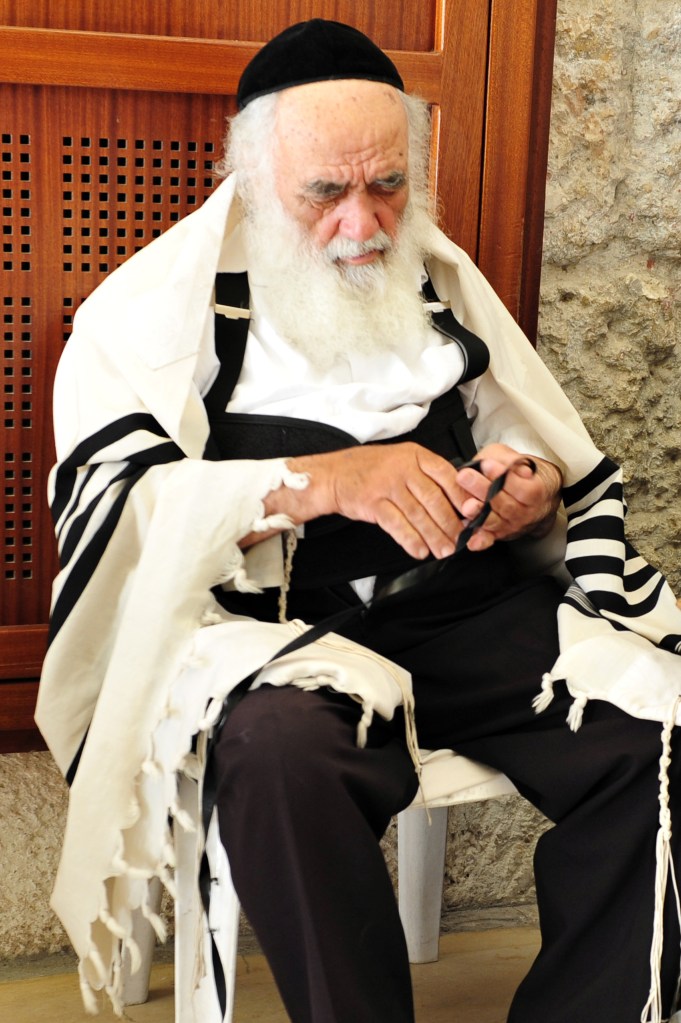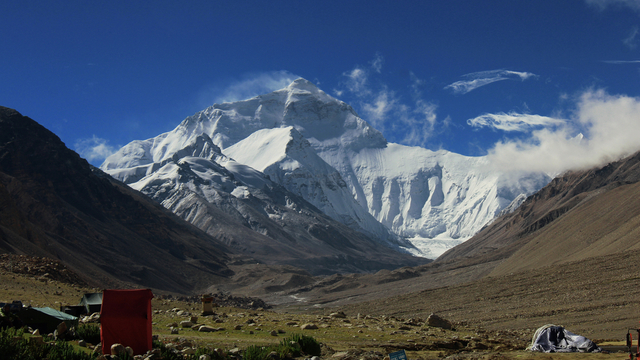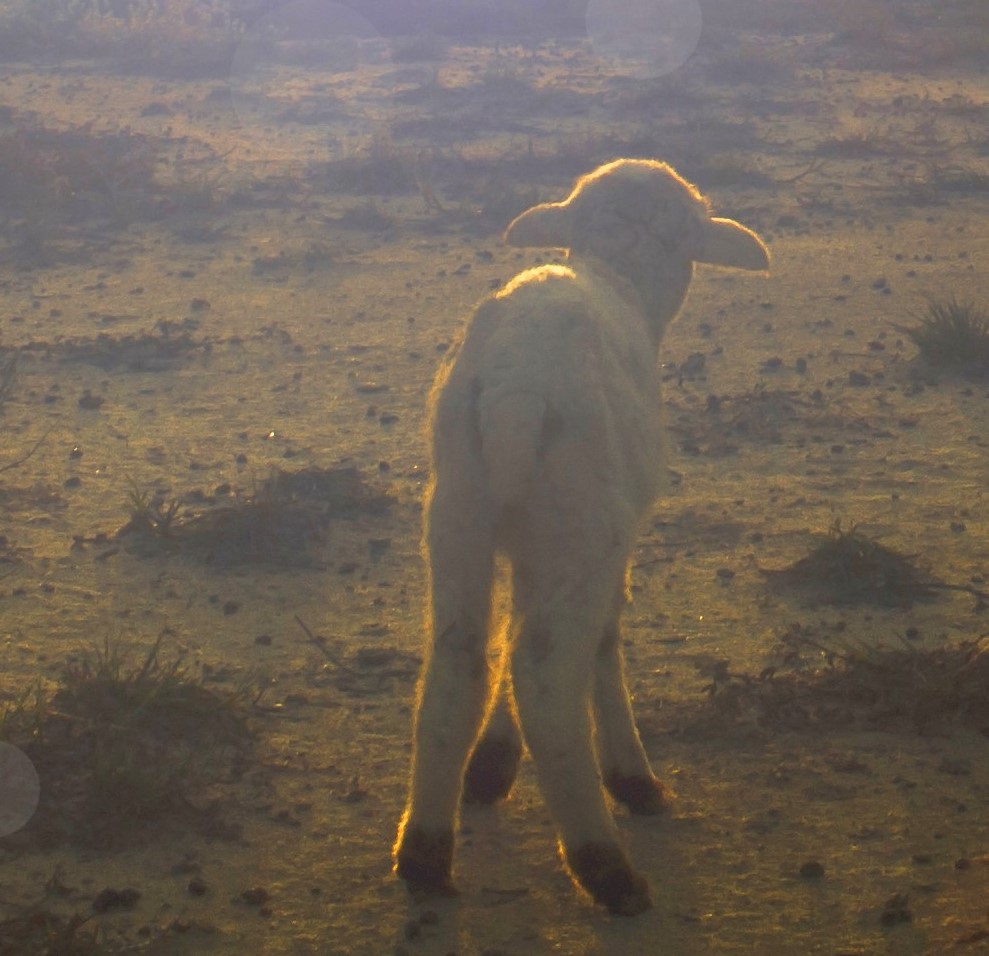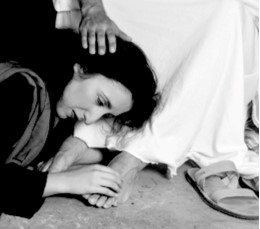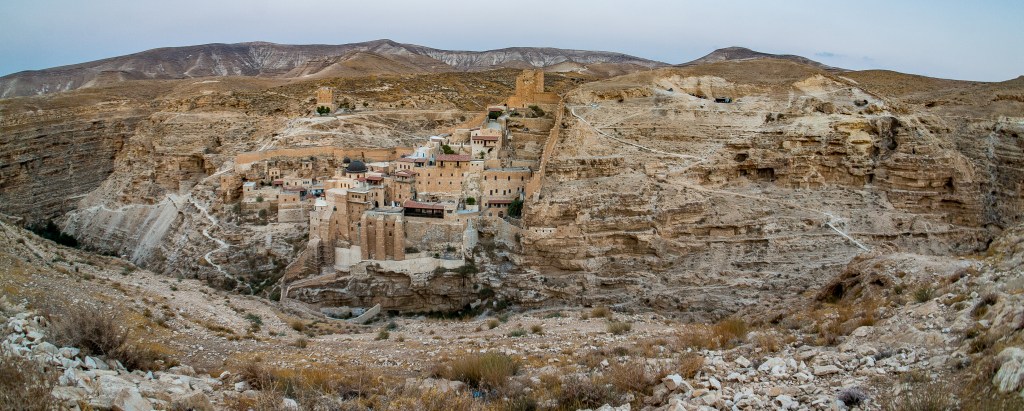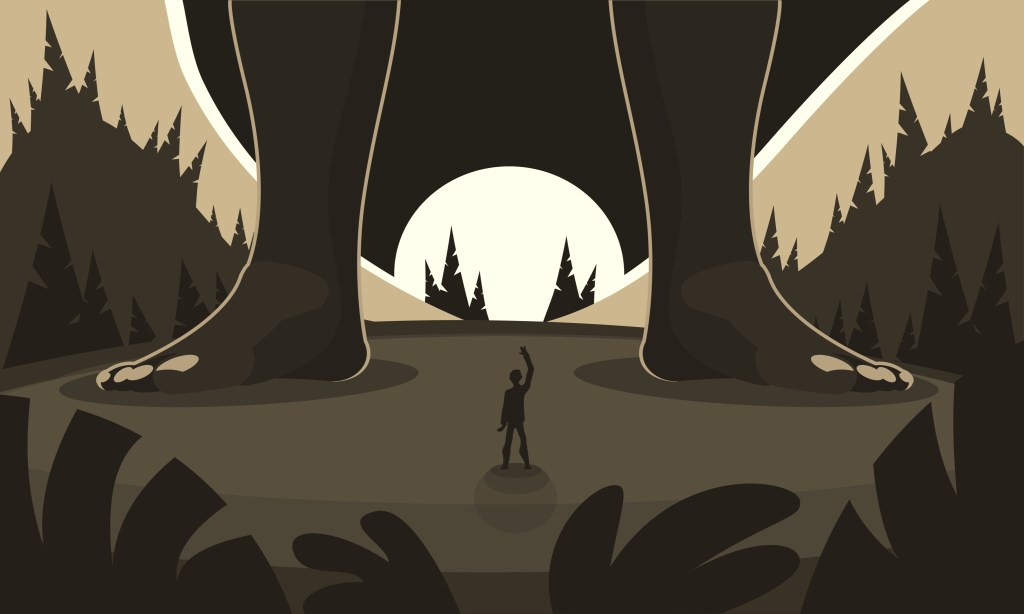1 Samuel 12:20-22
And Samuel said to the people, “Do not be afraid; you have done all this evil. Yet do not turn aside from following the LORD but serve the LORD with all your heart. And do not turn aside after empty things that cannot profit or deliver, for they are empty. For the LORD will not forsake his people, for His great name’s sake, because it has pleased the LORD to make you a people for Himself.”
I stand alone in the crowd this morning at Gilgal, conspicuous in my solitary state, a teenage widow. My husband of less than a year followed Saul into battle against the Ammonites. I begged him not to go; I told him how much I needed him and how afraid I was that he would not come back. He chided me affectionately. He had no choice, really, because he was one of the many in Israel who demanded a king to rule over us so we would be like other nations. When Saul, the newly selected king, demanded an army to defend Jabesh-gilead, all the men in our village prepared to go. My husband wanted a king, and so he would fight alongside this king. He was even excited to do this. My needs were not important enough to make him stay. Saul and his army defeated the Ammonites, but I cannot celebrate today. My husband gave his life for this king now crowned before the LORD God of Israel. My fears realized; I feel only sorrow.
I try to make sense of the jubilation around me. I confess I never understood why we needed a king. Didn’t Yahweh tell us He would fight for us? He delivered us from slavery in Egypt and gave us this good land. He defeated our enemies in the past, and He set good men, like Samuel, to be judges over us. I know I am just a woman, and a young woman at that, but all my life I heard the Torah recited. Our history as children of Israel chosen by Yahweh to be His people was known by every child. When I asked my husband why we didn’t just rely on God instead of insisting on a king, he patted my head and told me not to worry about things I could not understand. Now he is dead, I am alone, and I feel abandoned and forsaken. Of what good is a king to me?
My misery drowns out the sounds of victory around me, and I miss Samuel’s beginning remarks to us. Suddenly, though, everyone is wailing and shouting, crying out to Samuel, “Pray for your servants to the LORD your God, that we may not die, for we have added to all our sins this evil, to ask for ourselves a king.” How had the mood changed so quickly? What did I miss that caused this outcry? Confusion becomes bewilderment as I see the panic in my neighbors’ faces, and I find myself pushing through the crowds to be closer to Samuel. It takes quite a while for the crowd to quiet enough for Samuel to continue, and by then I am standing directly in front of the platform where he stands. I hear him calmly tell us not to be afraid even though we have done a great evil in asking for a king. He tells us to not stop following Yahweh and to serve Him will all our hearts. Then, he looks down and sees me standing alone and unprotected in the mass of our people. Smiling, he looks into my eyes as he admonishes, “And do not turn aside after empty things that cannot profit or deliver, for they are empty.”
My heart is burning within me, my mind a tumultuous jumble, and I frantically push my way through the packed assembly of people, finally breaking free and running through the barley fields to the mantra pulsating through me: “How did Samuel know? He’d never met me. How could he know?” Finally exhausted, I through myself on the ground, hiding beneath the grey storm clouds and the swaying plants ripe for harvest. It makes no sense, Samuel looking at me as he spoke, but somehow, he knew. All my life I searched for fulfillment and acceptance. I was obedient as a child and hardworking, hoping my Abba would notice me. I was a good sister and a friend who never demanded to have my own way. But I was the youngest in our family, small in stature, easily overlooked. I was the quiet one among the girls in my village, easily ignored and always on the fringe. I thought marriage would give me a sense of belonging and did everything I knew to be a good and proper wife, but my husband had important responsibilities; I was easy to dismiss. Now I am a widow with no children, and I will wear obscurity as my cloak for the rest of my life.
The reality of Samuel’s words finally penetrates my self-pity, and I sit up startled by their truth. Samuel knew because I was not the only one who turned aside from following Yahweh faithfully. He addressed his words to all Israel, but no one else mattered to me right now. I was personally guilty. I searched for fulfillment and acceptance, but I never searched to know God, content to let others tell me about Him and His ways. I hadn’t clamored for a king like Saul, but I had turned aside from Yahweh to pursue the emptiness of pleasing others in the hope of being worthy of someone’s love. I had crowned other kings all on my own – a king of self-absorption ruled my emotions; I crowned insecurity a king and let him rule my mind; I crowned fear a king and let him dictate my actions; I crowned my husband, my family and my friends king and counted on them to fulfill me. And I was in the process of crowning misery a king and letting him decimate my heart. All these empty things, with empty promises, without profit or help, received more of my focus than Yahweh. I had done “all this evil,” just as Samuel said. Hugging my knees to my chest as I rocked back and forth, my confession is a groan from the deepest place inside me, a wrenching cry for forgiveness that only God could hear.
Then I remember the rest of Samuel’s words, “For the LORD will not forsake His people, for His great name’s sake, because it has pleased the LORD to make you a people for Himself.” As these words break through my tortured, repentant heart, the sun breaks through the storm clouds, warming me from the inside out. Yahweh’s words are full of promise and surety. He will never leave me or forsake me, not because of anything good I ever did but because of His great name, because of His steadfast love. It pleased Him to make Israel a people for Himself. Almighty God, El Roi, notices me. I matter to Him. He will not overlook me or ignore me. I belong to Him. I fall on my face as the sweet song of praise and thanksgiving rings out over the fields and the barley stalks bow their heads in worship around me. Yahweh is my King; He shall be as a husband to me. I will fear only Him with reverence and awe, and I will faithfully serve Him with all my heart. He has done great things for me, and I choose to seek Him for the rest of my life. I will wear His cloak of love and acceptance. Forgiveness follows confession. Now I will celebrate.
REFLECTION QUESTIONS:
1.) What empty things have you run after?
2) What “kings” have you allowed to rule over you?
3) Who will be the focus of your life?



